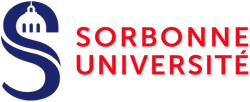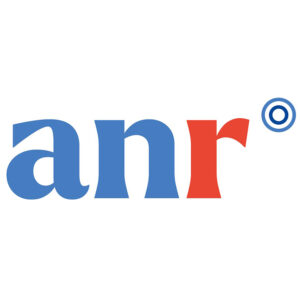Heart failure: the UTHop’IA project reinforces therapeutic education during hospitalization
Heart failure is a chronic disease that requires lifelong monitoring. As with all chronic diseases, therapeutic education plays a major role in the management of the disease, by involving patients and their families in the care process. It means better compliance with treatment, fewer hospitalizations and a better quality of life.
Led by IHU ICAN, the UTHop’IA project aims to support heart failure patients from hospitalization to their return home, using digital tools and artificial intelligence.
Find out more about the 5 projects included in UTHop’IA, involving CapGemini and students from the ECE engineering school, Polytech and Pantheon-Sorbonne University.
What medical problems does the UTHop’IA project address?
Heart failure affects around 1 million people in France, and 120,000 new cases are diagnosed every year. This chronic disease is responsible for 200,000 hospitalizations and 70,000 deaths every year. It mainly affects people over the age of 75, but can also affect much younger people. Malgré les progrès de la prise en charge, un patient sur deux meurt dans les cinq ans suivant le diagnostic.Since 2006, doctors in the cardiology department at Hôpital de la Pitié-Salpêtrière have been running a therapeutic education program (ETP) for heart failure patients after discharge from hospital, which includes several group workshops.
Unfortunately, these workshops are not always well attended by patients, who are not sufficiently aware of the seriousness of their disease and the changes it implies in their daily lives. 50% of patients relapse and are readmitted to hospital 6 months after discharge. It is therefore vital to reduce this figure.Learn more about heart failureThe UTHop’IA project aims to raise patients’ awareness of the importance of therapeutic education from the moment of hospitalization for cardiac decompensation, in order to improve patient follow-up and avoid further hospitalization.
What is the UTHop’IA project?
One of the aims of the UTHop’IA project is to set up a therapeutic education program for patients hospitalized for a heart failure attack, using digital tools and artificial intelligence.
Thanks to this innovative program, hospitalized patients will be able to discover and assimilate “key” information to help them understand their illness: What treatments and new habits can you incorporate into your daily routine? How do I apply the salt-controlled diet? What are the warning signs of impending decompensation?
The UTHop’IA project, which will continue to develop for a few more years before it becomes available, aims to support patients from their hospitalization to their return home:
- While the patient is in hospital, information is delivered interactively by a humanoid robot,
- Once discharged from hospital and back at home, the patient’s awareness continues via a computer or smartphone, where he or she can find the same interface used during hospitalization. The artificial intelligence remembers previous interactions with the patient.
- In the weeks that follow, voice-mediated telemonitoring is set up (via computer or smartphone) to monitor the patient’s new disease-related habits.
An innovative project structured into 5 research sub-projects
The UTHop’IA project is structured into 5 research sub-projects to develop the various pedagogical and technical aspects of the therapeutic education program:
- ROB’EDUC: creation of a therapeutic education program (quizzes, advice, etc.). This sub-project benefited from the institutional support of AstraZeneca and the collaboration of students from the ECE engineering school. Find out more about the ROB’EDUC sub-project.
- ROBMAP: research into the autonomous navigation of the humanoid robot, called Charlie, within the hospital ward to visit patients, with the help of students from
- ROBARM: design of an automated arm for the Charlie robot’s autonomy in opening service doors, with the help of Polytech students in collaboration with Capgemini Engineering.
- CAP BOT VOCAL: development of a “voice bot” assistant using artificial intelligence, with the help of students from Pantheon Sorbonne University.
- CAP BOT DESIGN: development of a connected speaker to complement the existing tablet, with the help of students from Polytech Sorbonne.
They support the UTHop’IA project
The UTHop’IA project is led by Dr Françoise Pousset, Prof Richard Isnard and Dr Lise Legrand (IHU ICAN). “We are convinced that this highly innovative project will support the work of our medical teams. The Charlie robot will reinforce our teams, not to replace human contact, which is essential, but to free up more time for patient care and follow-up during hospitalization.”This innovation will give medical teams a real break from the frenetic pace of care. The benefits will be felt not only by caregivers, but also by patients, who will be better equipped to deal with their illness. “Aurélie Foucher, Scientific Operations Manager on the UTHop’AI project.For its ROB’EDUC sub-project, the UTHop’IA project benefited from the institutional support of AstraZeneca, as well as from the mobilization of IHU ICAN employees who raised funds during the 2022 Heroes’ Run.Find out more about the ROB’EDUC projectLearn more about heart failureMake a donation to support innovation







